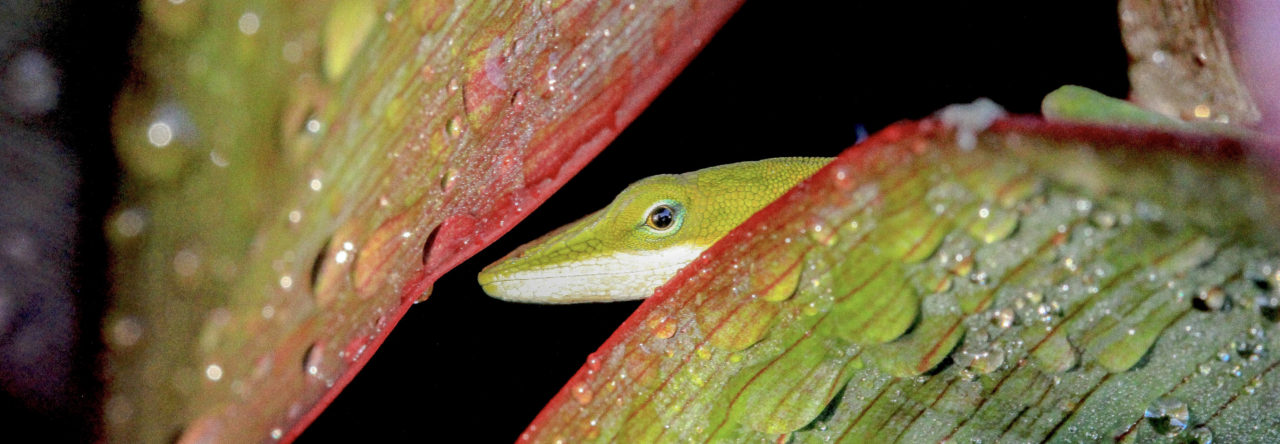Predicting the responses of species to current environmental and climate change is one of the largest duties of current biologists. Ectothermic species (including lizards) are particularly vulnerable because they lack the ability to metabolically generate heat and rely on environmental sources of temperature to maintain their body temperatures. For species that live in the tropics, this task is much harder because tropical environments experience less temperature variation both within and across seasons. Tropical lizards traverse these landscapes to try and maintain optimal and preferred body temperatures, but are all thermal environments equal in the constraints they impose on lizards?
To address this question, Lauren Neel, a student of Mike Angilletta’s at Arizona State University, collected an astounding amount of data from two species of anole: Anolis sagrei from their native range on Great Exuma in the Bahamas, and A. apletophallus in Panama. She collected environmental temperature data using biophysical models, thermal performance data by racing anoles at several different body temperatures and measuring their sprint speed, and preferred body temperatures by placing lizards in a thermal gradient. Despite both lizards living in tropical climates, she found distinct differences between the environments (and anoles!). Anolis sagrei thermoregulated more, was active for longer periods of time than A. apletophallus, and exhibited warmer preferred temperatures. Neel and colleagues also found that A. sagrei is not likely to suffer a drop in performance capacity as environments warm over time, whereas A. apletophallus is likely to experience a significant reduction in their speed performance which might be a physiological precursor to population collapse and a rise in local extinction events. Great stuff coming from Lauren Neel; stay tuned for more!
- SICB 2022! - December 28, 2021
- SICB 2020: Artificial Light Keeps Green Anoles Hungry! - January 8, 2020
- SICB 2020: Variation in Anole Sperm and Testis Morphology - January 8, 2020



Leave a Reply